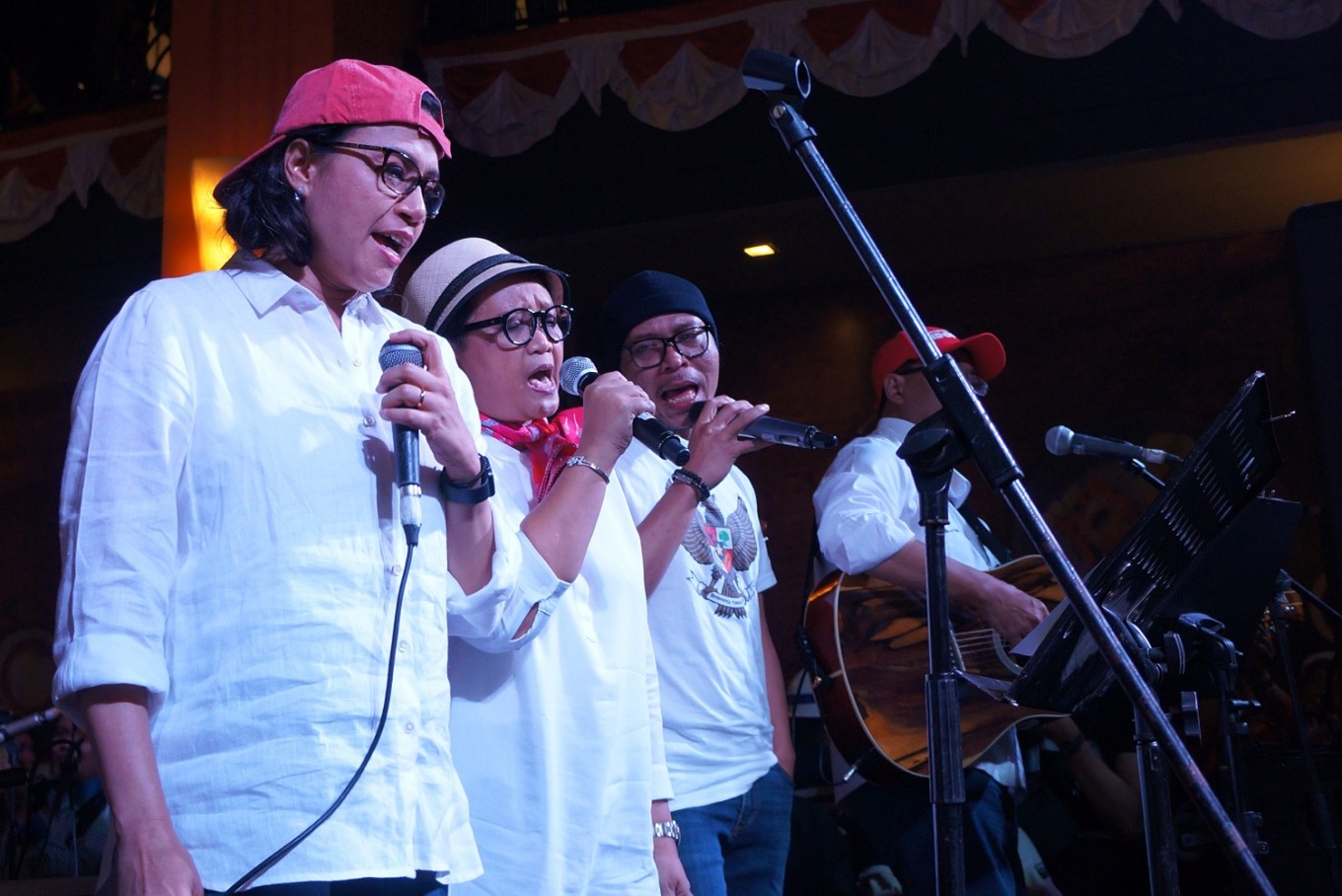Popular Reads
Top Results
Can't find what you're looking for?
View all search resultsPopular Reads
Top Results
Can't find what you're looking for?
View all search resultsTrendy policymakers win millennials’ hearts
Change text size
Gift Premium Articles
to Anyone
A
s the country enters its demographic bonus period, several of President Joko “Jokowi” Widodo’s cabinet members are seeing their popularity grow among millennials.
Indonesian millennials, the generation of people aged 20 to 34 years old, are estimated to number 65.9 million in 2019, making up nearly a quarter of the country’s population of 266 million, according to Statistics Indonesia (BPS).
One of these cabinet members is Finance Minister Sri Mulyani Indrawati, an active Instagram user with 1 million followers, whose comments characterizing millennials as drinking too much coffee and not saving for retirement have reserved her a special place among the country’s young.
She is probably aware that her number of followers surpasses most of real “selebgrams”, thus making her a trendsetter, as she has said she wanted to become one when she retired.
“Someone came up to me at a mall and asked to take a picture with me, saying ‘where did you buy that blouse, Ma’am? I wanted to get it too so we can have the same clothes’,” Sri Mulyani said recently, giggling.
“So, I was thinking that when I’m no longer the finance minister, perhaps I could become a selebgram and [people would] endorse me."
Sri Mulyani, a former World Bank managing director, is also the vocalist of an unofficial cabinet minister band named “Elek Yo Band” (Nevermind It’s Awful), which includes Public Works and Housing Minister Basuki Hadimuljono on drums and Transportation Minister Budi Karya Sumadi on guitar, as well as several other ministers.
The band performed -- and attracted a huge crowd -- at last year’s Java Jazz festival and raised Rp 10 billion (US$706,611) at a charity concert for the victims of West Nusa Tenggara’s earthquakes.
On a different occasion in September, Jokowi jokingly told Elek Yo Band members to practice more as they were “so awful it upsets my stomach when I listen to them”, as reported by kompas.com.
Jokowi himself is known as the first president to don casual clothing during impromptu visits, wearing his son’s Zara bomber jacket during a speech and appearing at a music festival, casting aside Indonesia’s stiff image of bureaucratic protocol and safari suits.
On top of that, he regularly uploads vlogs documenting his work visits to his Instagram account and YouTube channel, which had 15.9 million followers and over 760,000 subscribers, respectively, as of Jan. 25.
His efforts to get closer to millennials appear to be paying off as he seeks reelection this year, with a survey by Lingkaran Survei Indonesia (LSI) concluding that the electability of the Jokowi-Ma’ruf Amin ticket among millennial voters is 52.7 percent, compared to Prabowo-Sandiaga’s 29.5 percent.
Other cabinet members have also made efforts to be relatable to millennials, such as Maritime Affairs and Fisheries Minister Susi Pudjiastuti and Foreign Minister Retno LP Marsudi, who at the 2018 Our Ocean Conference (OOC) jokingly referred to themselves as “millennial girls”.
Noted sociologist Imam Prasodjo said millennials, in addition to being the largest generation in the country, were intertwined with technology, allowing their social networks to expand beyond those of preceding generations.
Such power is combined with Indonesia’s growing era of “participatory politics” in which citizens are becoming more actively involved in the policymaking process, providing millennials with a chance to steer the direction of the country.
“If policymakers want their policies to work out, they have to interact with the millennials and the latter’s perceptions and visions,” Imam told The Jakarta Postover the phone on Friday. “Otherwise, all policies that do not refer to the aspirations of millennials will not prevail.”
He contrasted this with the 1970s, when the majority of the population was below 18 years of age and were thus not at a productive age with the relevant views, leading to an authoritative regime with a top-down policymaking system.
“Nowadays, the system has flipped into a bottom-up process where policymakers absorb aspirations from the people [...] which is why acknowledging millennials as the majority is quite important,” said Imam.










